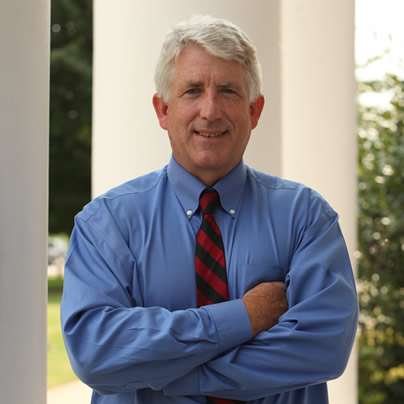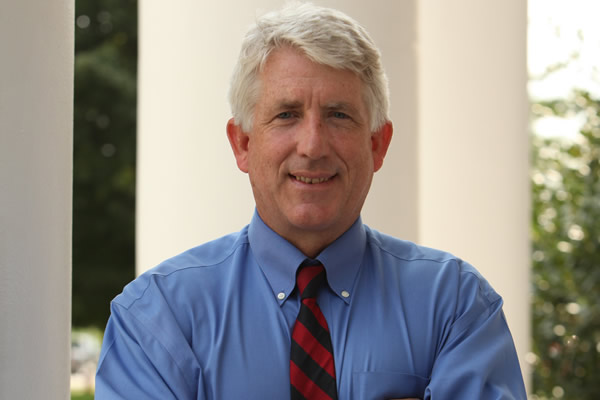Local
Herring unveils LGBT agenda
Attorney general candidate says Ken Cuccinelli’s challenge of sodomy law ruling is “wrong”


Mark Herring says he will push for greater protections for transgender, lesbian, bisexual and gay Virginia residents. (Photo courtesy of Herring for Attorney General)
Virginia attorney general candidate Mark Herring on Friday unveiled an agenda he maintains would extend equality to transgender, lesbian, bisexual and gay Virginia residents.
The Democratic state senator who represents portions of Loudoun and Fairfax Counties said during a conference call that he would adopt a non-discrimination policy in the Attorney General’s office that includes sexual orientation and gender identity. Herring also stressed he would support boards of visitors of the commonwealth’s public colleges and universities’ efforts to ban anti-gay discrimination against their employees and students — current Attorney General Ken Cuccinelli in 2010 recommended these institutions remove LGBT-specific provisions from their non-discrimination policies.
Herring said he would work with local school districts to implement anti-bullying policies that “protect all students.” He added he would continue to oppose efforts to ban students from forming Gay-Straight Alliances.
Herring, who also supports marriage rights for same-sex couples, said he would work with advocates to end what he described as Virginia’s discriminatory adoption and foster care policies to ensure “placement decisions are always based on the best interests of the child and that no child in Virginia is denied a loving home.”
“I am committed to an equality agenda because I believe it’s time we have an attorney general who will protect and defend the civil rights of all Virginians,” he said. “It’s important for folks to understand that defending the civil rights of Virginians is not just an abstract concept.”
Herring spoke with reporters three days after the Washington Blade reported Cuccinelli, who will likely face former Democratic National Committee Chair Terry McAuliffe in the commonwealth’s November’s gubernatorial election, asked the 4th Circuit U.S. Court of Appeals in Richmond to review a three-judge panel’s decision last month that struck down Virginia’s sodomy law.
“Ken Cuccinelli is wrong on this,” Herring said.
Herring further criticized Cuccinelli for his opposition to other LGBT-specific issues in the commonwealth.
“Ken Cuccinelli has taken action and supported policies that are divisive,” he said. “They’ve hurt Virginians; they’ve damaged the state’s reputation.”
Gay Virginia Sen. Ebbin to chair ‘LGBT Virginians for Herring’
Herring, who would face either state Sen. Mark Obenshain (R-Harrisonburg) or state Del. Rob Bell (R-Albemarle) in November if he defeats former assistant U.S. attorney Justin Fairfax in the Democratic primary in June, also announced the formation of an LGBT steering committee that gay Virginia state Sen. Adam Ebbin (D-Alexandria) will chair.
“The public is more than ready for an attorney general like Mark Herring who not only covered the gamut of issues, but particularly stands up for equality,” Ebbin said, referring to Cuccinelli’s opposition to abortion and other issues. “Not only are they ready for it, they expect it. Mark will meet those needs.”
Former Alexandria City Council candidate Sean Holihan; former Arlington Gay and Lesbian Alliance President Kris McLaughlin; LGBT rights advocates Danny Barefoot and Seth Morrison; Richmond resident Jim Schuyler and Charley Conrad, former chair of the Democratic Party of Virginia’s LGBT Caucus, are also part of the “LGBT Virginians for Herring” steering committee.
“We cannot afford to have any more of this craziness come out of the attorney general’s office,” Conrad, who is a substitute teacher in Arlington and Fairfax County schools, said. “The attorney general is the person that can look out for all the citizens of Virginians and not just some of the citizens of Virginia.”
Maryland
Md. Commission on LGBTQIA+ Affairs released updated student recommendations
LGBTQ students report higher rates of bullying, suicide

The Maryland Commission on LGBTQIA+ Affairs has released updated recommendations on how the state’s schools can support LGBTQ students.
The updated 16-page document outlines eight “actionable recommendations” for Maryland schools, supplemented with data and links to additional resources. The recommendations are:
- Developing and passing a uniform statewide and comprehensive policy aimed at protecting “transgender, nonbinary, and gender expansive students” against discrimination. The recommendation lists minimum requirements for the policy to address: name, pronoun usage, and restroom access.
- Requiring all educators to receive training about the specific needs of LGBTQ students, by trained facilitators. The training’s “core competencies” include instruction on terminology, data, and support for students.
- Implementing LGBTQ-inclusive curricula and preventing book bans. The report highlights a “comprehensive sexual education curriculum” as specifically important in the overall education curriculum. It also states the curriculum will “provide all students with life-saving information about how to protect themselves and others in sexual and romantic situations.”
- Establishing Gender Sexuality Alliances “at all schools and in all grade levels.” This recommendation includes measures on how to adequately establish effective GSAs, such as campaign advertising, and official state resources that outline how to establish and maintain a GSA.
- Providing resources to students’ family members and supporters. This recommendation proposes partnering with local education agencies to provide “culturally responsive, LGBTQIA+ affirming family engagement initiatives.”
- Collecting statewide data on LGBTQ youth. The data on Maryland’s LGBTQ youth population is sparse and non-exhaustive, and this recommendation seeks to collect information to inform policy and programming across the state for LGBTQ youth.
- Hiring a full-time team at the Maryland Department of Education that focuses on LGBTQ student achievement. These employees would have specific duties that include “advising on local and state, and federal policy” as well as developing the LGBTQ curriculum, and organizing the data and family resources.
- Promoting and ensuring awareness of the 2024 guidelines to support LGBTQ students.
The commission has 21 members, with elections every year, and open volunteer positions. It was created in 2021 and amended in 2023 to add more members.
The Governor’s Office of Communication says the commission’s goal is “to serve LGBTQIA+ Marylanders by galvanizing community voices, researching and addressing challenges, and advocating for policies to advance equity and inclusion.”
The commission is tasked with coming up with yearly recommendations. This year’s aim “to ensure that every child can learn in a safe, inclusive, and supportive environment.”
The Human Rights Campaign’s most recent report on LGBTQ youth revealed that 46.1 percent of LGBTQ youth felt unsafe in some school settings. Those numbers are higher for transgender students, with 54.9 percent of them saying they feel unsafe in school.
Maryland’s High School Youth Risk Behavior Survey reveals a disparity in mental health issues and concerns among students who identify as LGBTQ, compared to those who are heterosexual. LGBTQ students report higher rates of bullying, feelings of hopelessness, and suicidal thoughts. Nearly 36 percent of LGBTQ students report they have a suicide plan, and 26.7 percent of respondents say they have attempted to die by suicide.
The commission’s recommendations seek to combat the mental health crisis among the state’s LGBTQ students. They are also a call for local and state governments to work towards implementing them.
Virginia
Va. lawmakers consider partial restoration of Ryan White funds
State Department of Health in 2025 cut $20 million from Part B program

The Virginia General Assembly is considering the partial restoration of HIV funding that the state’s Department of Health cut last year.
The Department of Health in 2025 cut $20 million — or 67 percent of total funding — from the Ryan White Part B program.
The funding cuts started with the Trump-Vance administration passing budget cuts to federal HIV screening and protection programs. Rebate issues between the Virginia Department of Health and the company that provides HIV medications began.
Advocates say the funding cuts have disproportionately impacted lower-income people.
The Ryan White HIV/AIDS Program, a federal program started in 1990, provides medical services, public education, and essential services. Part B offers 21 services, seven of which remained funded after the budget cuts.
Equality Virginia notes “in 2025, a 67 percent reduction severely destabilized HIV services across the commonwealth.”
Virginia lawmakers have approved two bills — House Bill 30 and Senate Bill 30 — that would partially restore the funding. The Ryan White cuts remain a concern among community members.
Both chambers of the General Assembly must review their proposed changes before lawmakers can adopt the bills.
“While these amendments aren’t a full restoration of what community-based organizations lost, this marks a critical step toward stabilizing care for thousands of Virginians living with HIV,” said Equality Virginia Executive Director Narissa Rahaman. “Equality Virginia plans to continue their contact with lawmakers and delegates through the conference and up until the passing of the budget.”
“We appreciate lawmakers from both sides of the aisle who recognized the urgency of this moment and will work to ensure funding remains in the final version signed by the governor,” added Rahaman.
District of Columbia
D.C. Black Pride theme, performers announced at ‘Speakeasy’
Durand Bernarr to headline 2026 programming

The Center for Black Equity held its 2026 DC Black Pride Theme Reveal event at Union Stage on Monday. The evening, a “Speakeasy Happy Hour,” was hosted by Anthony Oakes and featured performances by Lolita Leopard and Keith Angelo. The Center for Black Equity organizes DC Black Pride.
Kenya Hutton, Center for Black Equity president and CEO, spoke following the performances by Leopard and Angelo. Hutton announced this year’s theme for DC Black Pride: “New Black Renaissance.”
Performers for 2026 DC Black Pride were announced to be Bang Garcon, Be Steadwell, Jay Columbus, Bennu Byrd, Rue Pratt and Akeem Woods.
Singer-songwriter Durand Bernarr was announced as the headliner for the 2026 festivities. Bernerr gave brief remarks through a video played on the screen at the stage.
DC Black Pride is scheduled for May 22-25. For more information on DC Black Pride, visit dcblackpride.org.


















